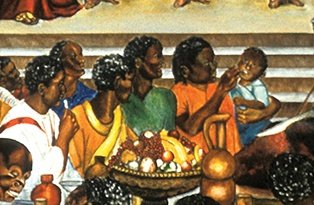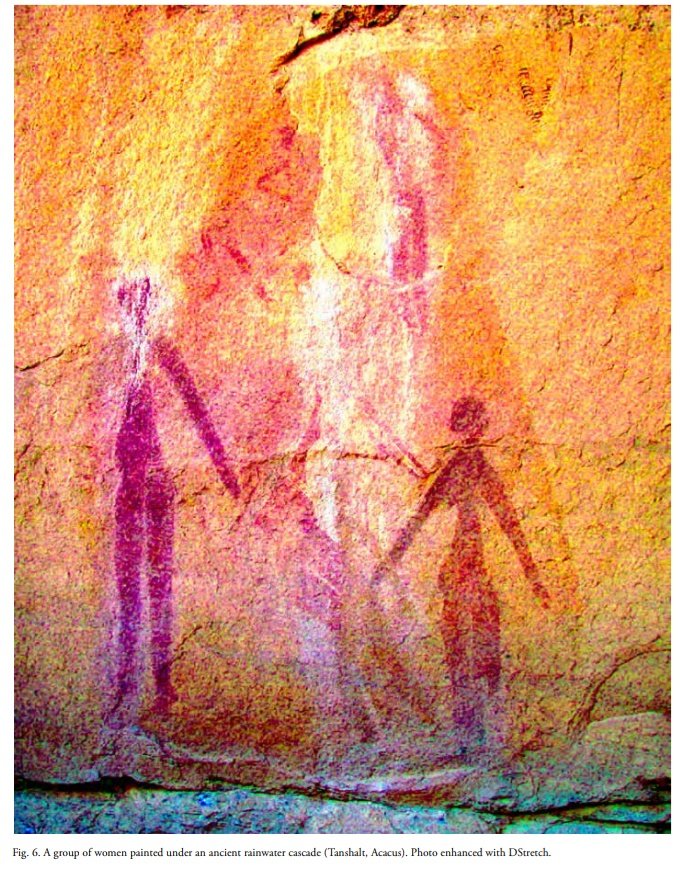Dr. Carter Godwin Woodson founded Negro history week in 1926, to honor & teach the hidden contributions of African descendants to human history, often overlooked in Eurocentric academia. He dedicated his life to preserve those missing pages of our history
#BlackHistoryMonth #Day1

#BlackHistoryMonth #Day1


Dr. Carter G Woodson was the author of several books, dealing with medieval and modern Black history. In his book "African heroes and heroines" he speaks on the history of West African civilizations, one of the ancestral homelands of African Americans. 

"The Western African and Sudanese kingdoms which the Mohammedans found on reaching the interior and the West Coast.... The first to be noticed was Kumbi, called Ghana by the Arabs.” - African heroes and heroines by Dr. Carter G Woodson 



"No one knows exactly how early Kumbi developed. The records show that the empire was in action at least fifteen hundred years ago" - African heroes and heroines by Dr. Carter G Woodson 



"There is no record of any but black kings and emperors who ruled in this part of Africa. These black people were called the Sarakolle" - African heroes and heroines by Dr. Carter G Woodson 

"The best sources are the works of those who traveled in these parts—such as Ibn-Haukal ..... Two histories have been left by native Africans themselves, namely, The Tarikh Es-Sudan, by Abderrah man Saadi, and the Tarikh El-Fettach, by Mahmud Köti" - Dr. Carter G Woodson 



"These people rose to heights under a great prince bearing the title maga or maya of Kumbi, or the tunka of Ghana..
This prince was respected as far as Cairo and Bagdad. He and his successors extended his power over the Arabs immigrating into that area" - Dr. Carter G Woodson

This prince was respected as far as Cairo and Bagdad. He and his successors extended his power over the Arabs immigrating into that area" - Dr. Carter G Woodson


"The king whom the invaders found ruling in Kumbi in such great sway was Tenkamenim. In 1062...When Tenkamenin gave audience he appeared in great state under a pavilion round which were ranged ten horses caparisoned in gold" - African heroes and heroines by Dr. Carter G Woodson 

"On the right of the king stood the sons of the prince of the empire magnificently dressed according to Oriental style. The governor of the town and all ministers of the empire sat upon the ground in front of the ruler." - African heroes and heroines by Dr. Carter G Woodson 

"The royal town surrounded by beautiful gardens was guarded by priests. In that important place no one was allowed to enter except those invited by the king, for in it were kept the idols of the nation, the tombs of the kings, and the royal prisons." - Dr. Carter G Woodson 



"The religion was animism, a belief that all things have good or evil spirits to be appeased in order that man may not be disturbed by the evil ones and may be blessed by the good" - African heroes and heroines by Dr. Carter G Woodson 

"Education from the African point of view had been made practical teaching the child to do what was required of his parents in raising a family, defending the country and preserving the customs of the people" - Dr. Carter G Woodson
#BlackHistoryMonth #Day1

#BlackHistoryMonth #Day1


"The empire was well organized from the point of view of its time. It showed as much evidence of political progress as was found in most of the kingdoms and empires then developed" - Dr. Carter G Woodson 



"Magic was believed and practiced in these parts... some times figured in the administration of justice. In the king himself, however, justice finally resided, for one of standing could always appeal to the sovereign" - Dr. Carter G Woodson
#BlackHistoryMonth #Day1
#BlackHistoryMonth #Day1

• • •
Missing some Tweet in this thread? You can try to
force a refresh






















